Search titles
Displaying results 21 to 30 of 208.

Aboriginal History Journal: Volume 43 »
Edited by: Ingereth Macfarlane
Publication date: December 2020
Volume 43 opens with an unexpectedly timely essay. Tom Gara’s study of the influenza epidemic that reached Australia in 1919 expands consideration of its global effects to include the poorly documented impacts on Aboriginal people in South Australia. The study was written and finalised to mark the centenary, prior to the advent of the 2020 Coronavirus pandemic. In this dramatically altered context, Gara’s evidence becomes significantly comparative as well as an account of an under-researched aspect of past infectious disease spread.
Annemarie McLaren’s article poses questions about the differing assumptions Aboriginal men and colonists made about their earliest travels together in country around Sydney Cove in 1791. McLaren interrogates Watkin Tench’s and John Hunter’s accounts of their joint travels with Colebee and Balloderry to explore how ‘guiding’ relationships first developed between Aboriginal people and expeditionary parties in New South Wales.
Grace Karskens’ conversation with Mark McKenna about her engagement with the story of Nah Doong, a nineteenth-century Aboriginal woman living in colonial Penrith, NSW, offers ‘a masterclass in how to write history’. Careful reading against the grain brings Nah Doong’s experience alive in a rare, fleshed-out biographical picture of an individual woman.
‘Big John Dodo’ (c. 1910–2003) is respected as a ceremonial and cultural leader for Karajarri country, south of Broome, WA. Darren Jorgensen draws on family and personal interviews to re-position John Dodo Nangkiriny’s ‘transitional’ art forms, which do not emulate pre-colonial or contemporary forms and are produced with new materials.
Beth Marsden provides a close reading of the campaign to resist construction of a ‘transit village’ in Morwell, Victoria, in the 1960s, illuminating various strands of assimilationist policy as well as multilayered political and grassroots resistance.
Tim Rowse and Barry Leithhead re-examine the underlying assumptions held by Dr Cecil Cook in his career as a Northern Territory administrator and commentator (1925–69). Demonstrating the relationship between racial thought and liberalism in Cook’s policies and advocacy, they argue that Cook’s common function as a shorthand for ‘ideologies, policies and practices of government that seem at best misguided and at worst cruel and racist’ needs re-evaluation.
In addition to a wide range of book reviews, this volume also has a review of the important Songlines: Tracking the Seven Sisters exhibition.
Download for free
Not available for purchase
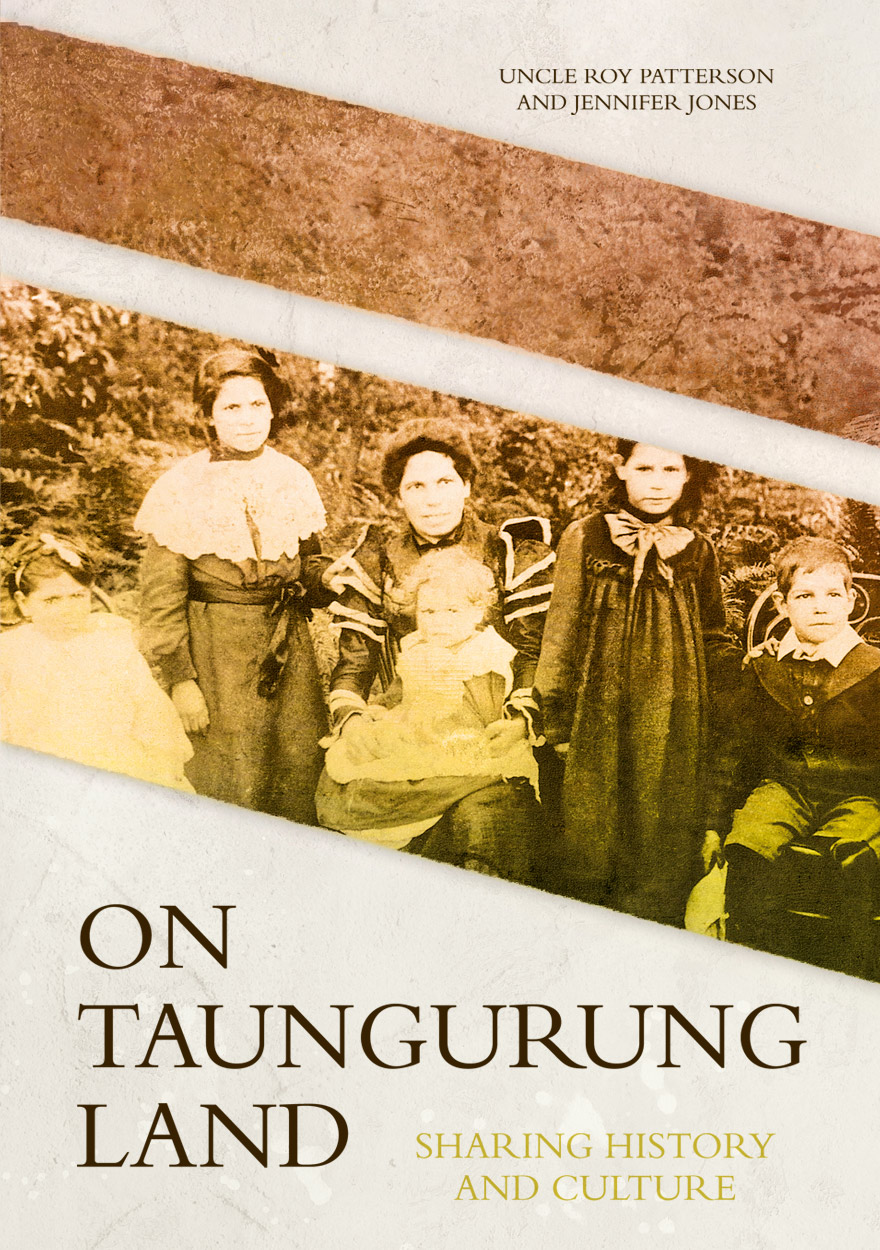
On Taungurung Land »
Sharing History and Culture
Authored by: Roy Henry Patterson, Jennifer Jones
Publication date: December 2020
On Taungurung Land: Sharing History and Culture is the first monograph to examine how the Taungurung Nation of central Victoria negotiated with protectors and pastoralists to retain possession of their own country for as long as possible. Historic accounts, to date, have treated the histories of Acheron and Mohican Aboriginal stations as preliminary to the establishment of the more famous Coranderrk on Wurundjeri land. Instead of ‘rushing down the hill’ to Coranderrk, this book concentrates upon the two foundational Aboriginal stations on Taungurung Country. A collaboration between Elder Uncle Roy Patterson and Jennifer Jones, the book draws upon Taungurung oral knowledge and an unusually rich historical record. This fine-grained local history and cultural memoir shows that adaptation to white settlement and the preservation of culture were not mutually exclusive. Uncle Roy shares generational knowledge in this book in order to revitalise relationships to place and establish respect and mutual practices of care for Country.

The Bible in Buffalo Country »
Oenpelli Mission 1925–1931
Publication date: October 2020
Arriving in the remote Arnhem Land Aboriginal settlement of Oenpelli (Gunbalanya) in 1925, Alf and Mary Dyer aimed to bring Christ to a former buffalo shooting camp and an Aboriginal population many whites considered difficult to control. The Bible in Buffalo Country: Oenpelli Mission 1925–1931 represents a snapshot of the tumultuous first six years of the Church Missionary Society’s mission at Oenpelli and the superintendency of Alfred Dyer between 1925 and 1931. Drawing together documentary and photographic sources with local community memory, a story emerges of miscommunication, sickness, constant logistical issues, and an Aboriginal community choosing when and how to engage with the newcomers to their land.
This book provides a fascinating and detailed record of the primary sources of the mission, placed alongside the interpretation and insight of local Traditional Owners. Its contents include the historical and archaeological context of the primary source material, the vivid mission reports and correspondence, along with stunning photographs of the mission and relevant maps, and finally the oral history of Esther Manakgu, presenting Aboriginal memory of this complex era.
The Bible in Buffalo Country emerged from community desire for access to the source documents of their own history and for their story to be known by the broader Australian public. It is intended for the benefit of communities in western Arnhem Land and is also a rich resource for historians of Aboriginal history (and other scholars in relevant disciplines).

‘We Are All Here to Stay’ »
Citizenship, Sovereignty and the UN Declaration on the Rights of Indigenous Peoples
Authored by: Dominic O’Sullivan
Publication date: September 2020
In 2007, 144 UN member states voted to adopt a Declaration on the Rights of Indigenous Peoples. Australia, Canada, New Zealand and the US were the only members to vote against it. Each eventually changed its position. This book explains why and examines what the Declaration could mean for sovereignty, citizenship and democracy in liberal societies such as these. It takes Canadian Chief Justice Lamer’s remark that ‘we are all here to stay’ to mean that indigenous peoples are ‘here to stay’ as indigenous.
The book examines indigenous and state critiques of the Declaration but argues that, ultimately, it is an instrument of significant transformative potential showing how state sovereignty need not be a power that is exercised over and above indigenous peoples. Nor is it reasonably a power that displaces indigenous nations’ authority over their own affairs. The Declaration shows how and why, and this book argues that in doing so, it supports more inclusive ways of thinking about how citizenship and democracy may work better. The book draws on the Declaration to imagine what non-colonial political relationships could look like in liberal societies.
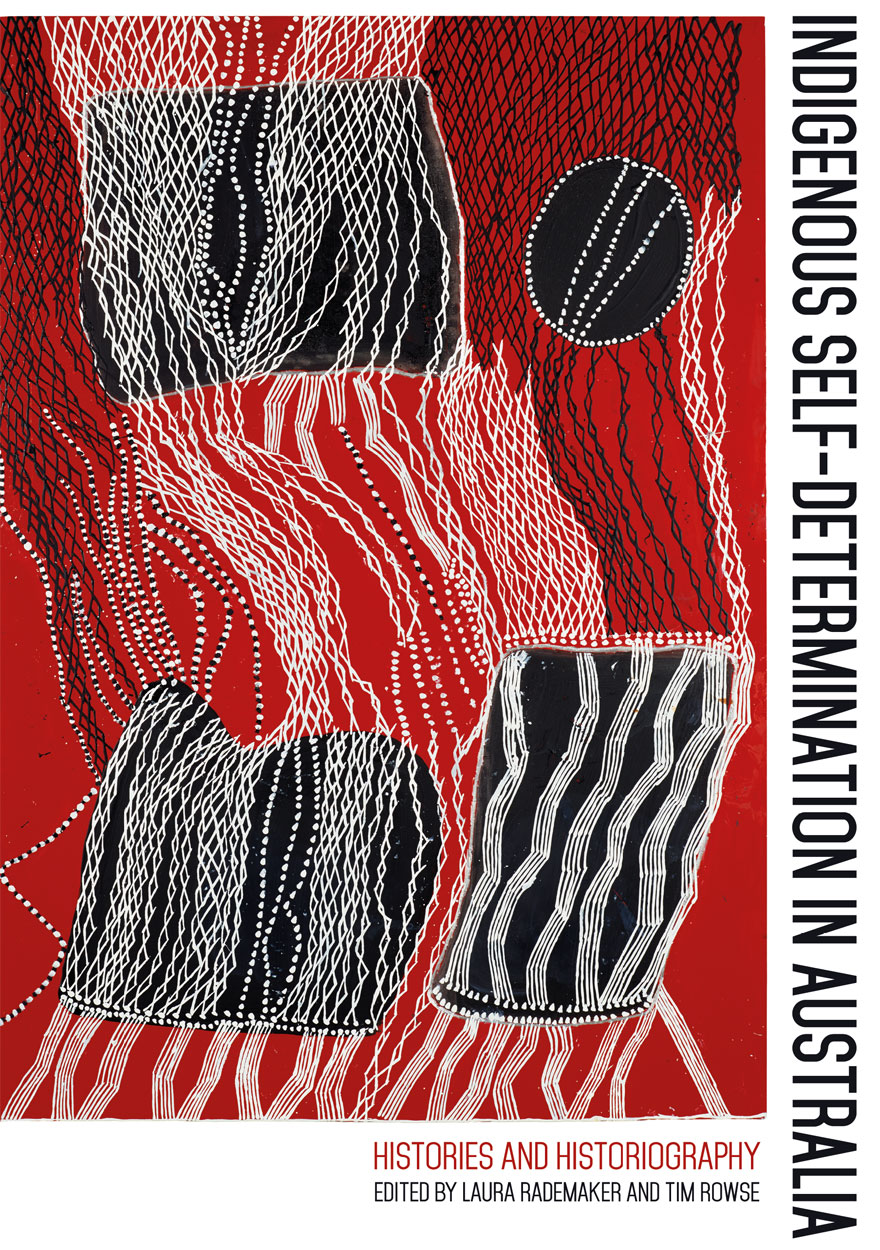
Indigenous Self-Determination in Australia »
Histories and Historiography
Edited by: Laura Rademaker, Tim Rowse
Publication date: September 2020
Histories of the colonisation of Australia have recognised distinct periods or eras in the colonial relationship: ‘protection’ and ‘assimilation’. It is widely understood that, in 1973, the Whitlam Government initiated a new policy era: ‘self-determination’. Yet, the defining features of this era, as well as how, why and when it ended, are far from clear. In this collection we ask: how shall we write the history of self-determination? How should we bring together, in the one narrative, innovations in public policy and Aboriginal and Torres Strait Islander initiatives? How (dis)continuous has ‘self-determination’ been with ‘assimilation’ or with what came after? Among the contributions to this book there are different views about whether Australia is still practising ‘self-determination’ and even whether it ever did or could.
This book covers domains of government policy and Indigenous agency including local government, education, land rights, the outstation movement, international law, foreign policy, capital programs, health, public administration, mission policies and the policing of identity. Each of the contributors is a specialist in his/her topic. Few of the contributors would call themselves ‘historians’, but each has met the challenge to consider Australia’s recent past as an era animated by ideas and practices of Indigenous self-determination.
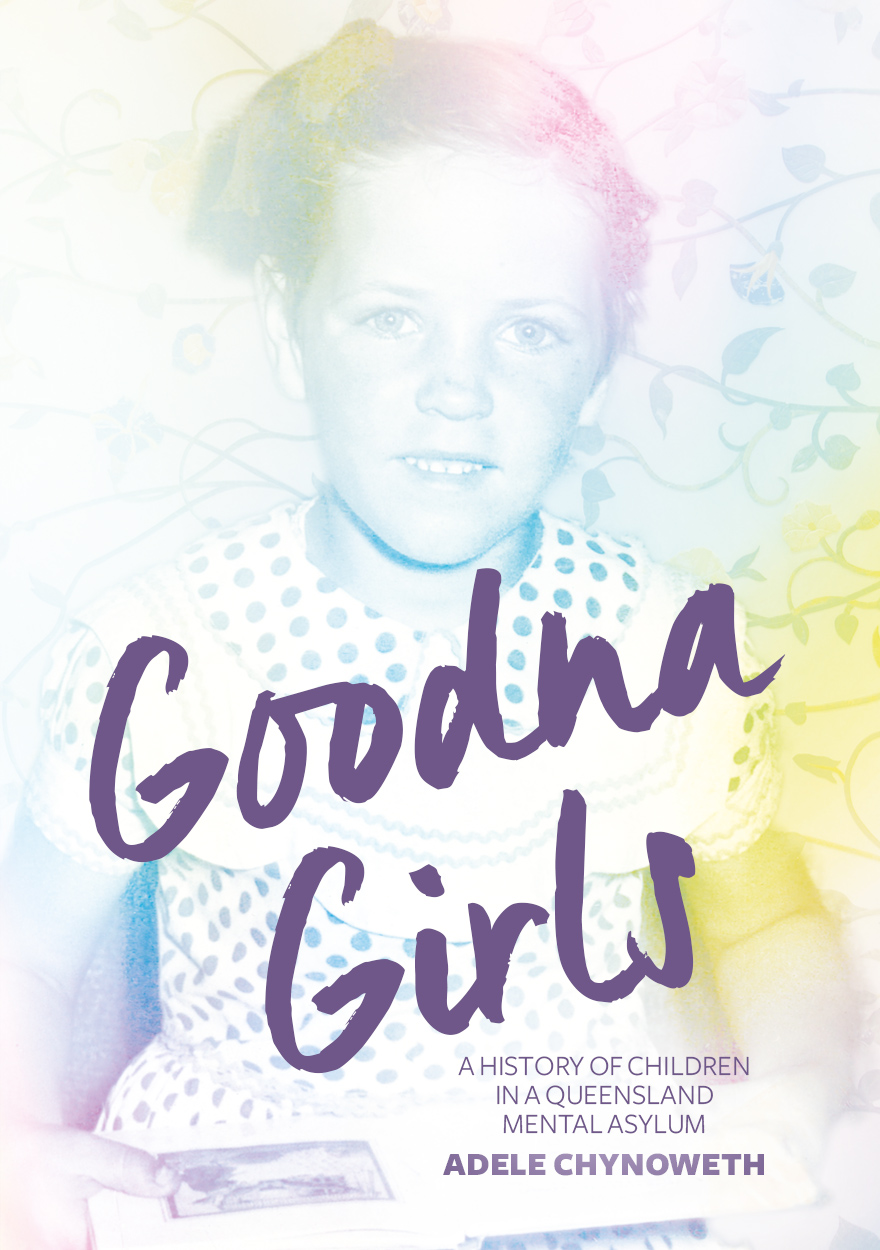
Goodna Girls »
A History of Children in a Queensland Mental Asylum
Authored by: Adele Chynoweth
Publication date: September 2020
Goodna Girls tells the story of children incarcerated in Wolston Park Hospital, an adult psychiatric facility in Queensland, Australia. It contains the personal testimonies of women who relate—in their own no-holds-barred style and often with irreverent humour—how they, as children, ended up in Wolston Park and how this affected their adult lives. The accounts of hospital staff who witnessed the effects of this heinous policy and spoke out are also included.
The book examines the consequences of the Queensland Government’s manipulation of a medical model to respond to ‘juvenile delinquents’, many of whom were simply vulnerable children absconding from abusive conditions. As Australia faces the repercussions of the institutionalisation of its children in the twentieth century, brought about through a series of government inquiries, Goodna Girls makes a vital contribution to the public history of the Stolen Generations, Former Child Migrants and Forgotten Australians.
Goodna Girls presents the research that informed a successful, collective campaign to lobby the Queensland Government to make long overdue and much-needed reparations to a group of courageous survivors. It holds contemporary resonance for scholars, policymakers and practitioners in the fields of public history, welfare, child protection, education, nursing, sociology, medicine and criminology.

Wiidhaa »
An Introduction to Gamilaraay
Authored by: John Giacon
Publication date: February 2020
The Gamilaraay language declined in use for many years after the colonisation of Australia. From around 1990, Gamilaraay people and others have been working to revive the language. This book draws on recent research into previous records and analyses of Gamilaraay and of the closely related, and better recorded, Yuwaalaraay. It provides an introduction to many aspects of the language including verbs, the case system and the extensive pronoun paradigm, in a format that students have found very helpful for the last 12 years.
Please note: Readers will need to download and open the PDF files in the latest version Adobe Acrobat to access and listen to the sound files within the book.
This textbook is used as course material in:
Gamilaraay – an introduction to an Australian Indigenous Language INDG2003 and INDG6003
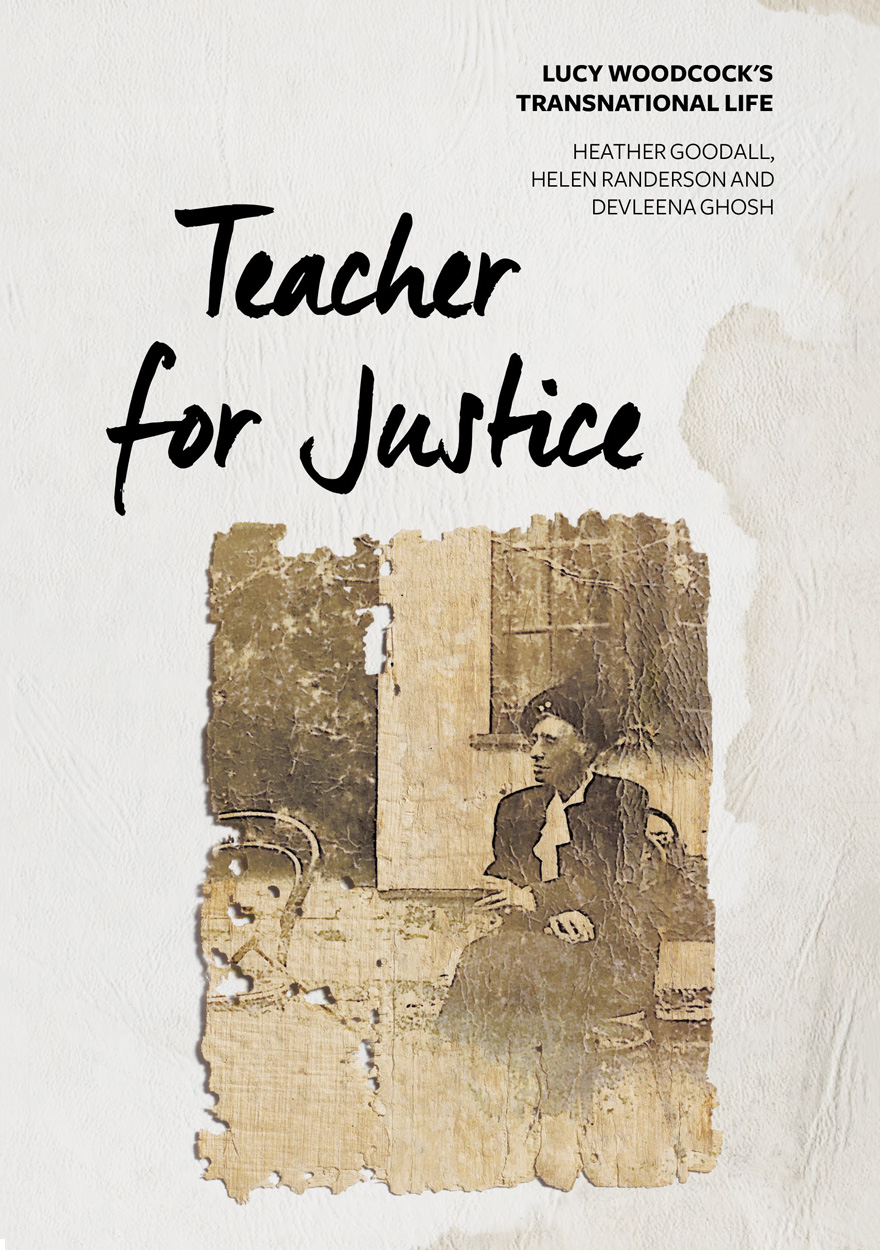
Teacher for Justice »
Lucy Woodcock's Transnational Life
Publication date: August 2019
‘Teacher for Justice is a major contribution to the history of the women’s movement, working‑class activism and Australian political internationalism. But it is more than this. By focusing on the life of Lucy Woodcock – an unrecognised and under-researched figure – this book rewrites the history of twentieth-century Australia from the perspective of an activist who challenged conventions to fight for gender, race and class equality, exploring the complex and multi-layered intersections of these aspects. It explores Woodcock’s personal relationships and the circles she mixed in and the friendships she forged, as well as the conventions she challenged as a single woman in possibly a same-sex relationship. The book makes a key contribution to the history of progressive education and the experience of women teachers. Above all, it charts the life of a transnational figure who made connections globally and, in particular, with refugees and with women in India and the Asian region. It is a detailed, thoroughly researched and richly textured history which places Woodcock within the context of the times in which she lived.’
Joy Damousi, Professor of History, University of Melbourne
‘Meet Lucy Woodcock, a complex, undaunted woman in a tough and changing world. From her role as a public school principal in Depression and wartime, to her union and feminist organising, to her transnational engagements for peace, this clear and thoughtful book brings to life forgotten forms of activism. It’s the gripping story of how Lucy navigated the minefields of gender, class, race and coloniality to change her world.’
Raewyn Connell, Professor Emerita, University of Sydney
‘Just over a century ago, the last of the pupil-teachers, Lucy Woodcock, co-founded the NSW Teachers Federation. So many of the principles and traditions that underpin our union today can be traced back to the lifelong work of Lucy Woodcock. She fought for the industrial rights of teachers deep in the knowledge of the broader social and economic context in which she lived and worked. Too often the role of working-class women whose influence is profound is ignored. This biography installs Lucy Woodcock into her rightful place as pivotal player in the history of twentieth-century Australia.’
Maurie Mulheron, President, NSW Teachers Federation
‘A fascinating history of a fascinating woman: Lucy’s interests were so broad and so modern – equal pay, racism, internationalism, Indigenous rights and anti-war struggles were all part of Lucy’s world. She had a vision beyond nationalism, championed the cause of world peace when peace was being treated as a dirty word and saw women as global citizens. Lucy was one of the heroes of our disgracefully unfinished Equal Pay struggle.’
Hon Dr Meredith Burgmann, anti-racism and peace activist, former President of the NSW Legislative Council
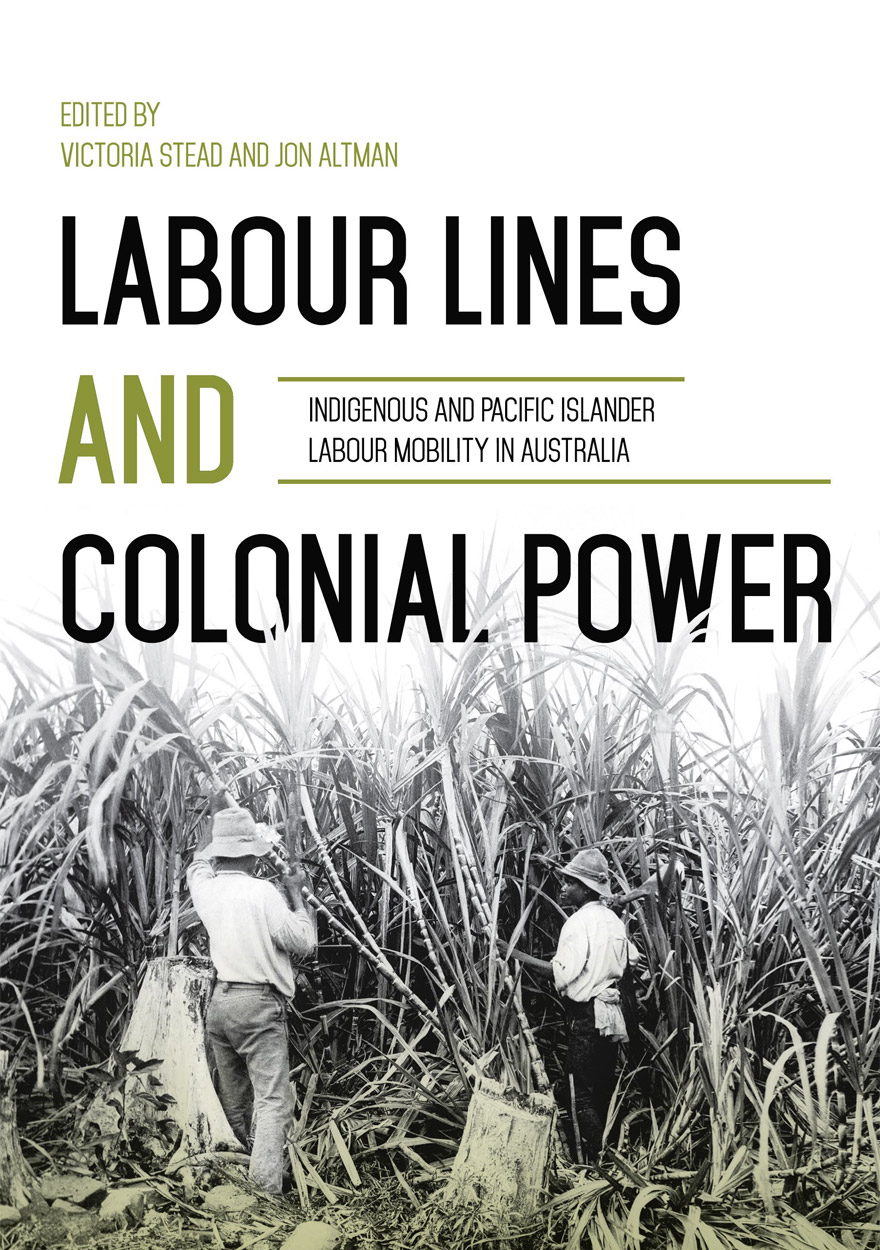
Labour Lines and Colonial Power »
Indigenous and Pacific Islander Labour Mobility in Australia
Edited by: Victoria Stead, Jon Altman
Publication date: August 2019
Today, increases of so-called ‘low-skilled’ and temporary labour migrations of Pacific Islanders to Australia occur alongside calls for Indigenous people to ‘orbit’ from remote communities in search of employment opportunities. These trends reflect the persistent neoliberalism within contemporary Australia, as well as the effects of structural dynamics within the global agriculture and resource extractive industries. They also unfold within the context of long and troubled histories of Australian colonialism, and of complexes of race, labour and mobility that reverberate through that history and into the present. The contemporary labour of Pacific Islanders in the horticultural industry has sinister historical echoes in the ‘blackbirding’ of South Sea Islanders to work on sugar plantations in New South Wales and Queensland in the late nineteenth and early twentieth centuries, as well as in wider patterns of labour, trade and colonisation across the Pacific region. The antecedents of contemporary Indigenous labour mobility, meanwhile, include forms of unwaged and highly exploitative labouring on government settlements, missions, pastoral stations and in the pearling industry. For both Pacific Islanders and Indigenous people, though, labour mobilities past and present also include agentive and purposeful migrations, reflective of rich cultures and histories of mobility, as well as of forces that compel both movement and immobility.
Drawing together historians, anthropologists, sociologists and geographers, this book critically explores experiences of labour mobility by Indigenous peoples and Pacific Islanders, including Māori, within Australia. Locating these new expressions of labour mobility within historical patterns of movement, contributors interrogate the contours and continuities of Australian coloniality in its diverse and interconnected expressions.
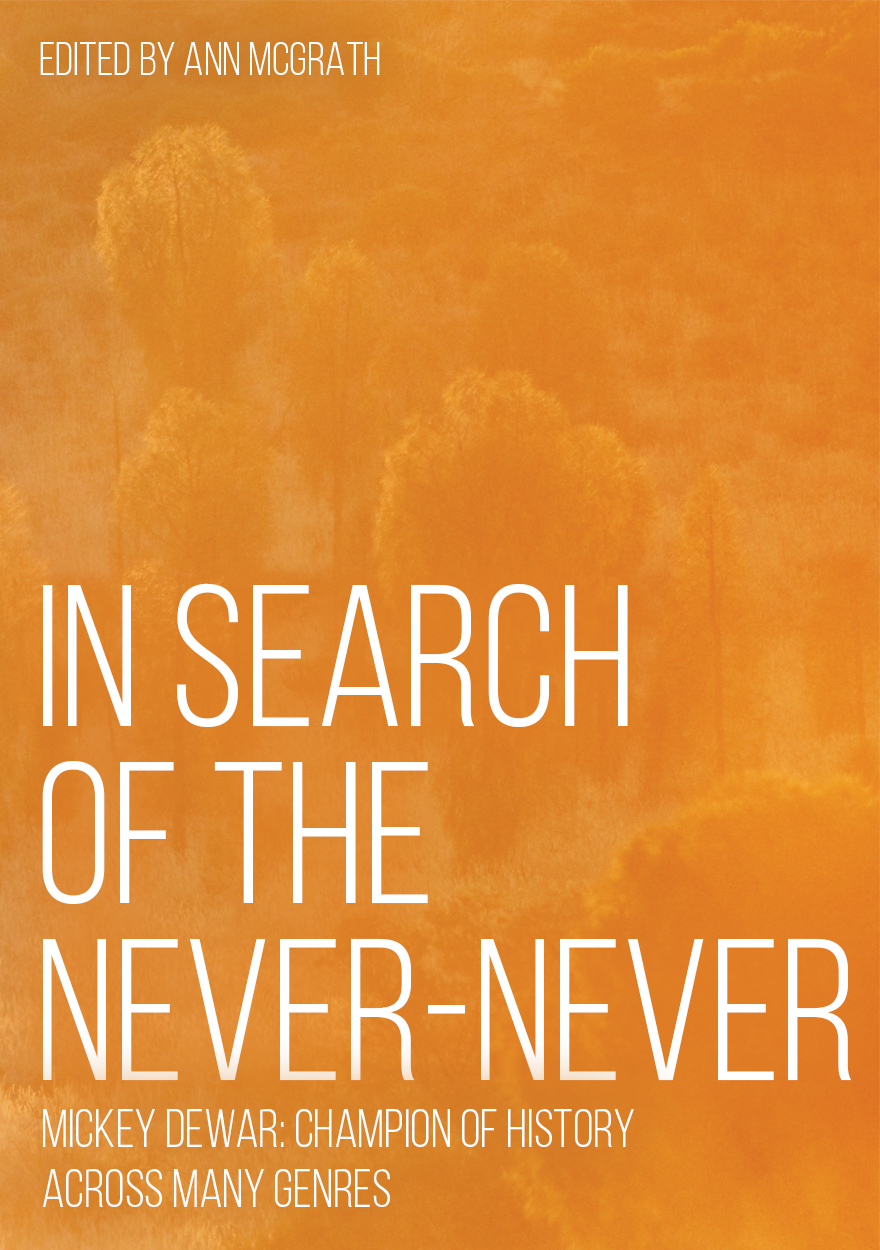
In Search of the Never-Never »
Mickey Dewar: Champion of History Across Many Genres
Edited by: Ann McGrath
Publication date: April 2019
Mickey Dewar made a profound contribution to the history of the Northern Territory, which she performed across many genres. She produced high‑quality, memorable and multi-sensory histories, including the Cyclone Tracy exhibition at the Museum and Art Gallery of the Northern Territory and the reinterpretation of Fannie Bay Gaol. Informed by a great love of books, her passion for history was infectious. As well as offering three original chapters that appraise her work, this edited volume republishes her first book, In Search of the Never-Never. In Dewar’s comprehensive and incisive appraisal of the literature of the Northern Territory, she provides brilliant, often amusing insights into the ever-changing representations of a region that has featured so large in the Australian popular imagination.



